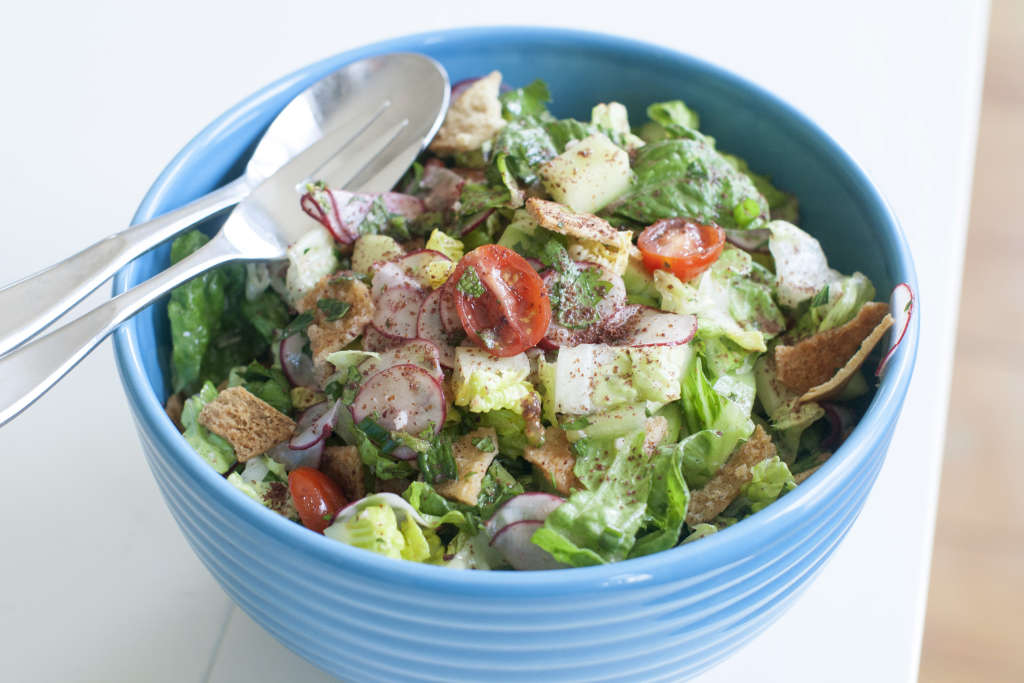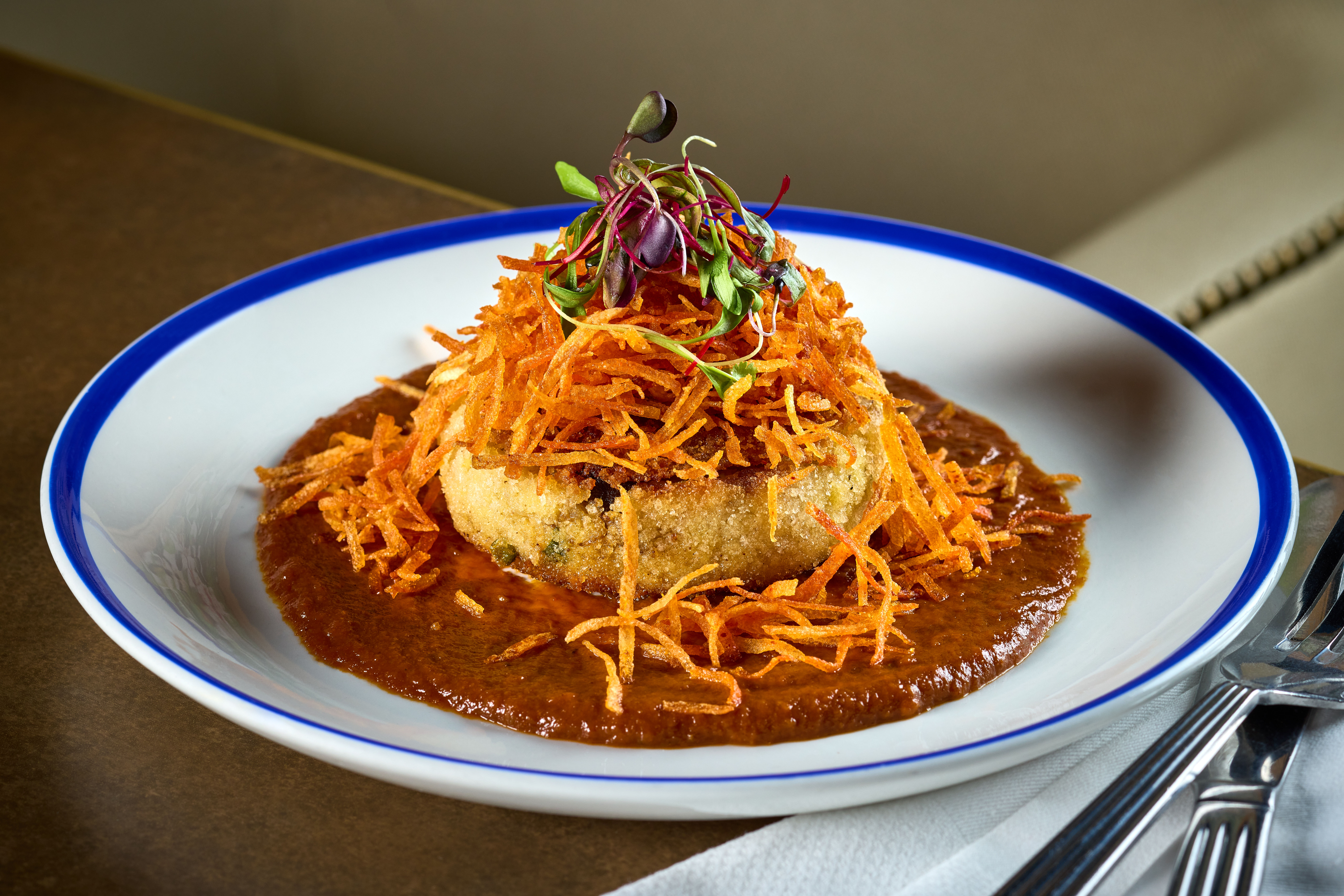WASHINGTON — Every day, Galley Foods delivers between 800 and 1,000 on-demand, chef-prepared meals to Washingtonians — dinners such as salsa verde pork tenderloin with roasted vegetables and mushroom Bolognese with escarole and kale Caesar salad. (There’s even the option to add a bottle of wine and a homemade cookie.)
But during the week of March 13, the folks at the local startup shook up Galley’s typical menu offerings and delivered a taste of Syria to homes throughout the nation’s capital.
To bring attention to the six-year anniversary of the Syrian conflict, Galley teamed up with the global humanitarian organization World Food Program USA and its Family Chef initiative, which collects recipes from refugees, including those from Syria, throughout the world.
For five days, Galley’s customers had the option to deviate from the more traditional seared salmon or baked ziti dinners and sink their forks into chicken kabsa and mujadara with fattoush salad.
Erin Cochran, vice president of communication at WFP USA, said the goal of partnership was to introduce locals to an often unfamiliar cuisine and to relay someone else’s story, one bite at a time.
“We’re talking about real people with real lives here, particularly in a place like Syria, which is now going on seven years of conflict,” Cochran said. “How do we make that experience something that people can almost relate to here at home? I think [food] sort of gives you a window into the lifestyle and lives of people who seem, and frankly are, so far from us, physically.”
Cochran and her colleagues combed through the organization’s refugee recipe collection to find traditional Syrian dishes that would resonate most with a local audience. The winners were chicken kabsa, a chicken and rice dish with onion, bay leaves, red pepper, cinnamon and cloves; mujadara, a vegetarian bulgur and lentil-based dish; and fattoush, a bread salad made with toasted or fried pieces of pita bread and an array of vegetables.

“We got to experiment with really strong flavors like cumin and cinnamon, and those types of combinations that we don’t typically cook, but [flavors] that people do enjoy,” said Alex Lawrence, marketing director of Galley Foods, which sold 300 Syrian meals over the course of the week.
The Syrian meals ordered were accompanied with cards that shared facts about the country’s culture and encouraged donations, but Cochran said the partnership was more than a fundraiser for WFP, which works in more than 80 countries and feeds more than 80 million people. It was a way to bring two countries, separated by oceans and continents, a little closer together.
“Food, to us, is the basic building block of life, and I think when you sit across the table from someone who may not speak the same language as you, may not look like you … if you can share a meal, it’s as basic as it gets. There’s a mutual understanding that can come from sharing a piece of bread with one another, or sharing in a meal that your mother or your friend has cooked lovingly for you,” Cochran said.
“We felt like it was a really interesting way to show diplomacy in a different way than maybe we’ve been seeing and hearing about so far in our nation’s capital,” she added.
Lawrence said while nothing is set, Galley Foods is open to doing future partnerships to highlight different cuisines from around the world, especially those from countries experiencing conflict.
“Food is the ultimate connector, and it is the way we transcend cultures and ethnicities; it’s just a great way to share who you are,” she said.
Want to cook a Syrian meal at home? The World Food Program USA’s Family Chef program has a number of recipes from Syrian refugees — and others — available for free online.







